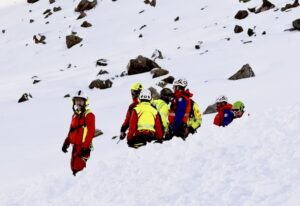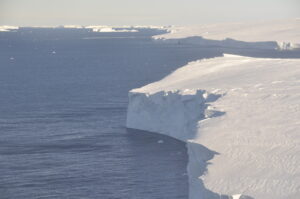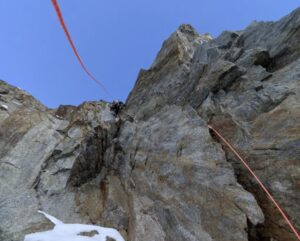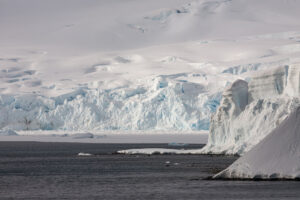After a scorching summer, Europe is now having one of the warmest winters ever registered.
Hopes for alpine ski resorts faded with the arrival of the New Year and what has so far been a scorching January. Temperatures in Switzerland were 20˚C on Monday, and record highs were also recorded in the Czech Republic, Germany, and Poland.
In France, the night of December 30-31 was the warmest since records began. Temperatures soared to nearly 25˚C in the southwest on New Year’s Day, reports Yahoo News.

Satellite image of the European Alps last winter and this winter. Photo: Yahoo News
Artificial snow or nothing
Warm winters are not new to Western European mountains, especially early in the season. But this year is the worst ever. Most resorts in the Alps and the Pyrenees are relying on artificial snow. For some of them, it’s been too warm even for that. Some have closed temporarily or for the rest of the season.
The problem is that artificial snow cannons need temperatures lower than about 4˚C in order to work. Meanwhile, central Europe has been baking in a heat wave since New Year’s. On January 1, temperatures reached 19ºC in Budapest, 25º in southern France and the northern coast of Spain, 19ºC in the usually freezing Warsaw, almost 20˚ in the Czech Republic, and 20ºC in Liechtenstein, according to ABC.
The popular ski jump competition celebrated every January 1 in Garmisch Pasterkirchen, Germany took place in all-artificial snow and plastic pads. Check the video below:
In the Swiss resort of Adelboden, the World Cup competitions scheduled for next weekend will take place, thanks to artificial snow. Many feared that the events would have to be canceled after thermometers hit an astonishing 20ºC around New Year, reports the BBC.
Les Contamines, a French resort overlooking Mont Blanc, just canceled this weekend’s World Cup telemark ski race because of a lack of snow, Time reported.
Half of France’s ski runs were closed earlier this week, Lugares de Nieve reported. Other resorts are also closing, such as Gourette and Ax 3 Domaines in the Pyrenees.
Only Scandinavian resorts in Sweden and Norway have managed to avoid the warm temperatures and lack of snow, thanks to shorter days and their northerly locations near the Arctic Circle.
Why is this happening?
Southerly winds, facilitated by clear skies, have pushed a mass of warm air from northern Africa. Not surprisingly, meteorologists believe that climate change is driving the anomalies. In a warmer atmosphere, temperature variations are wider.
Most expect that this will not be an isolated phenomenon, but an unstoppable trend. For the ski and snow-related tourism industry, it’s a disaster.

The anomalous weather pattern is hitting most of the European continent. Graph: ABC
In the future, only resorts above 2,500m will get enough natural snow to stay in business, according to the Institute for Snow and Avalanche Research. For mountain towns and the lower slopes of virtually all European ski reports, this means that “By the end of the century, [it’s] just going to be over…skiing in the Alps as we know it,” climate science professor Win Thiery told Sky News.
While the bigger resorts may be high enough to keep natural snow on their upper sections, some lower-level resorts across France, Switzerland, and Italy have no chance. Instead, they must consider offering summer options like hiking and cycling.
While this winter is particularly extreme, warming has been going on for many years. “Nearly half the 169 ski resorts that were forced to shut down since 1951 did so for a lack of snow,” Euronews reported last year, citing research from the University of Grenoble.
The only bright side is that the lower energy consumption has spared the European countries the feared power scarcity expected by experts — and Vladimir Putin.






